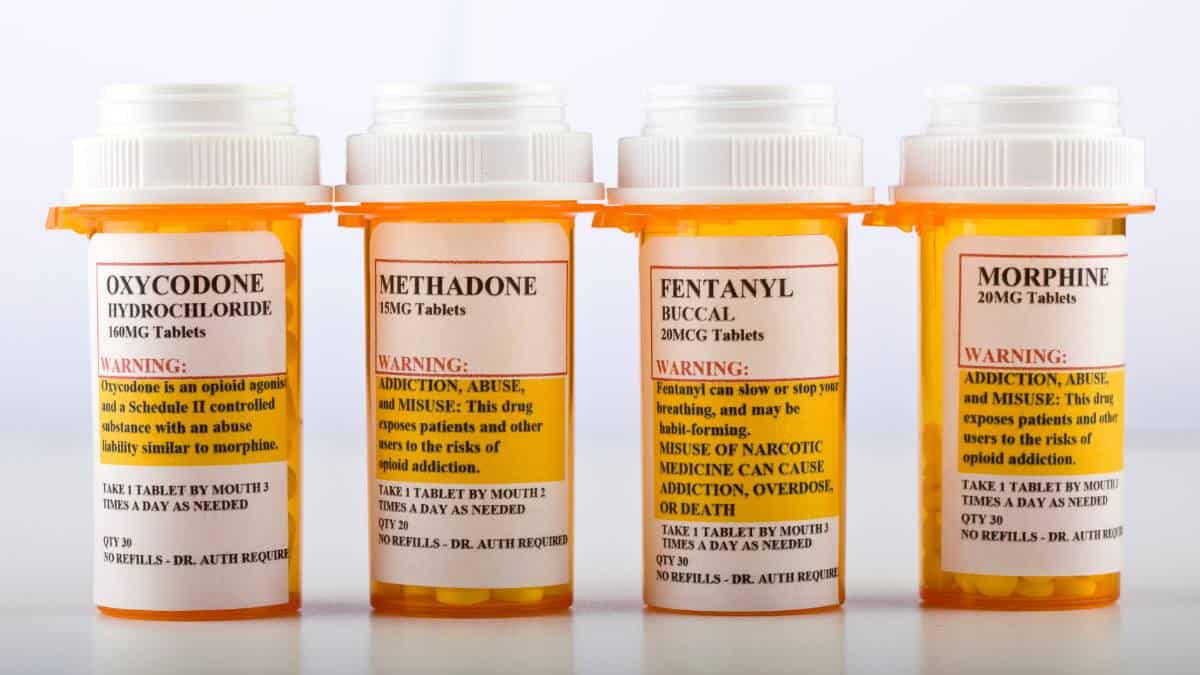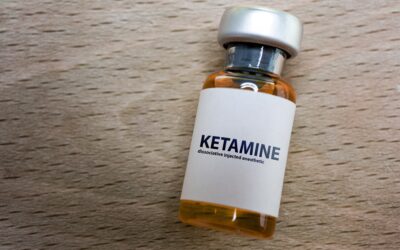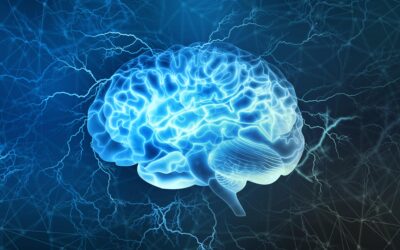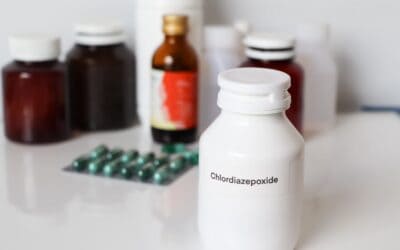Opioid Detox in Memphis, TN
At Detox West Tennessee, we understand the challenges that come with opioid addiction. Our dedicated team is here to provide a safe and effective pathway to recovery through our specialized opioid detox in Memphis, TN. We’re committed to offering compassionate care that addresses addiction’s physical and emotional aspects.
Our approach is based on the latest evidence-based treatments, ensuring that each individual receives the personalized care they need to start their journey to recovery. We believe in creating a supportive environment that empowers clients to overcome addiction and rebuild their lives.
What Are Opioids?
Opioids are a class of drugs that include both prescription pain relievers and illegal drugs like heroin. They are derived from the opium poppy plant or synthesized to mimic its effects. Opioids are potent substances that interact with opioid receptors in the brain and body.
Thus, blocking pain signals and producing feelings of euphoria. While they can be highly effective in managing pain, they also carry a high risk of addiction, dependence, and overdose. Exploring the question “Does opioid addiction start from prescriptions?” sheds light on the role of healthcare providers in preventing opioid misuse and addiction.
Common prescription opioids include oxycodone (OxyContin), hydrocodone (Vicodin), codeine, morphine, and fentanyl. Illicit opioids, such as heroin, are also highly addictive and pose significant health risks. Opioid addiction has become a major public health crisis globally, leading to numerous overdoses and deaths each year.
According to the Centers for Disease Control and Prevention (CDC), more than 75% of drug overdose deaths in 2021 involved opioids. This amounted to nearly 80,411 opioid-related overdose deaths in the United States that year.

The Difference Between Opioids and Opiates
Understanding the difference between opioids and opiates is crucial in comprehending the extent of opioid addiction. Opiates are naturally occurring drugs derived from the opium poppy, such as morphine and codeine.
Opioids, a broader classification, include opiates and also synthetic or semi-synthetic drugs designed to mimic the effects of natural opiates, like fentanyl and methadone. Regardless of the source, opioid addiction can start from prescriptions or illicit drug use, leading many to our doors seeking help.
Understanding Opioid Addiction
It’s crucial to grasp the nature of opioid addiction. Often misunderstood, this condition can start innocently from prescriptions or gradually develop through various means. Recognizing the signs and symptoms of opioid addiction early is paramount to seeking timely help.
Does Opioid Addiction Start From Prescriptions?
Opioid addiction can indeed start from prescriptions. Opioids are commonly prescribed to manage pain after surgeries, injuries, or chronic pain conditions. While these medications can be effective in alleviating discomfort, they also carry a risk of addiction and dependence. Particularly, when used for an extended period or in higher doses than prescribed.
Individuals may develop a tolerance to opioids. Consequently, leading them to require larger doses to achieve the same level of pain relief. This can inadvertently escalate into misuse, dependency, and ultimately opioid addiction. At Detox West Tennessee, our opioid detox in Memphis, TN aims to help individuals recover safely and effectively from addiction.
Exploring the question “Does opioid addiction start from prescriptions?” sheds light on the role of healthcare providers in preventing opioid misuse and addiction. Healthcare providers need to monitor opioid prescriptions carefully and watch for signs of prescription drug addiction.
Individuals should use them exactly as directed to minimize the risk of addiction. Additionally, education about the potential risks of opioids and the importance of proper use is crucial in preventing addiction.
How Does Opioid Addiction Start?
Opioid addiction can start in various ways, but it often begins with the legitimate use of prescription opioids to manage pain. When individuals take opioids for pain relief, whether it’s after surgery, due to injury, or for chronic pain conditions, they may experience a sense of euphoria along with pain relief. This euphoric effect is one of the primary reasons why opioids are so addictive.
Repeated use of opioids can lead to the development of tolerance, meaning the body requires higher doses to achieve the same level of pain relief or euphoria. As individuals increase their dosage to maintain the desired effects, they may inadvertently become physically dependent on opioids. Dependence occurs when the body adapts to the presence of opioids and experiences withdrawal symptoms when the drug is discontinued.
Moreover, opioids interact with the brain’s reward system, flooding it with dopamine, a neurotransmitter associated with pleasure and reward. This flood of dopamine reinforces drug-taking behaviors, making individuals more likely to seek out opioids despite the negative consequences.
So, how does opioid addiction start? The combination of tolerance, physical dependence, and changes in the brain’s reward system contribute to the addictive nature of opioids. Over time, individuals may find themselves unable to function without opioids, leading to compulsive drug-seeking behavior, despite adverse effects on their health, relationships, and overall well-being.
Signs and Symptoms of Opioid Addiction
Recognizing the signs and symptoms of opioid addiction can help individuals seek help and support for themselves or loved ones.
Here are some common signs and symptoms:
- Increased tolerance: Needing higher doses of opioids to achieve the same effects as before.
- Physical dependence: Experiencing withdrawal symptoms when attempting to cut down or stop opioid use, such as nausea, vomiting, diarrhea, sweating, muscle aches, and agitation.
- Preoccupation with obtaining opioids: Spending a significant amount of time and effort obtaining, using, and recovering from the effects of opioids.
- Loss of control: Inability to control opioid use, even when faced with negative consequences such as health problems, relationship issues, or legal troubles.
- Neglecting responsibilities: Prioritizing opioid use over responsibilities at work, school, or home.
- Social withdrawal: Withdrawing from social activities and hobbies once enjoyed in favor of opioid use.
- Changes in behavior: Mood swings, irritability, anxiety, depression, or unexplained euphoria.
- Financial issues: Spending significant amounts of money on obtaining opioids, even to the detriment of financial stability.
- Physical changes: Weight loss, decreased personal hygiene, track marks (if injecting opioids), and other physical signs of drug use.
- Secrecy and deception: Hiding opioid use from others, lying about drug use, or engaging in secretive behaviors to obtain or use opioids.
Someone experiencing one or more of these signs does not necessarily indicate opioid addiction. However, if you or someone you know exhibits several of these symptoms, it may be a cause for concern. Seeking help from a healthcare professional or addiction specialist is crucial for the proper assessment and treatment of opioid addiction.

The Importance of Opioid Detox in Memphis, TN
Opioid detoxification, the process of clearing opioids from the body, is a critical step in overcoming opioid addiction. It serves as the foundation for long-term recovery by addressing the physical dependence on opioids and preparing individuals for further treatment. The importance of opioid detox lies in several key factors:
- Safety: Detoxing from opioids can be accompanied by uncomfortable and sometimes dangerous withdrawal symptoms. Supervised medical detox ensures that individuals receive appropriate care and support to manage these symptoms safely.
- Stabilization: Detoxification helps stabilize individuals physically, allowing them to begin addressing the psychological and behavioral aspects of addiction more effectively. It provides a clear starting point for comprehensive treatment.
- Increased comfort: Medical detoxification may involve the use of medications to alleviate withdrawal symptoms, making the process more comfortable and manageable for individuals undergoing detox.
- Reduced cravings: Detox helps reduce the intense cravings associated with opioid withdrawal, which can be a significant barrier to recovery. By addressing physical dependence, detox can help individuals regain control over their thoughts and behaviors.
- Engagement in treatment: Completing detoxification sets the stage for ongoing addiction treatment, including therapy, counseling, and support groups. Individuals are better able to engage in these aspects of treatment once the acute withdrawal phase has passed.
- Prevention of relapse: Detoxification alone is not sufficient for long-term recovery, but it is an essential first step. By addressing physical dependence and reducing withdrawal symptoms, detox can help prevent relapse during the early stages of recovery.
Overall, opioid detox is a crucial component of addiction treatment. Thus, providing a safe and supportive environment for individuals to begin their journey toward recovery. It lays the groundwork for further therapeutic interventions and sets individuals on the path to a healthier, drug-free life.
Benefits of Detox West Tennessee Opioid Detox
At Detox West Tennessee, our strategy for opioid detox in Memphis, TN is both multifaceted and individualized, ensuring that we address the physical and emotional layers of addiction. We know that for many, opioid addiction starts from prescriptions, turning a solution for pain into a profound struggle. Our team is well-versed in identifying the signs and symptoms of opioid addiction, which is the cornerstone of personalizing our detox programs.
Medication-assisted treatment (MAT) plays a pivotal role in our detoxification process, easing withdrawal symptoms and carving a smoother path to recovery. By combining FDA-approved medications with counseling and behavioral therapies, we can attack opioid addiction on multiple fronts. This approach at our opioid detox center in West Tennessee not only addresses the physical aspects of addiction but also lays the groundwork for long-term coping strategies.
Detoxing from opioids is indeed challenging, but our comprehensive care offers more than just medication-assisted treatment for opioid addiction. We incorporate holistic therapies into the mix, recognizing the difference between opioids and opiates and how each can impact an individual. From yoga and mindfulness to art and music therapy, our holistic offerings aim to heal the mind alongside the body.
Wound care and support heal the physical scars of addiction, a reminder of the journey but also the progress made. We believe in treating the whole person, not just the addiction.
Lastly, our aftercare planning is crucial for maintaining sobriety post-detox. We understand the question of “How long does opioid detox take?” varies significantly among individuals, but our commitment doesn’t end when the initial detox process does. We’re here to ensure our clients have the tools, support, and addiction resources to continue recovery after they leave our facility.
Detox for Women
We’re proud to offer gender-specific programs, with detox for women addressing unique challenges and barriers to recovery. In a supportive and safe environment, our female clients find space to heal and grow. Understanding how opioid addiction starts, particularly in women, allows us to tailor our approach, focusing on empowerment and resilience.
Detox for Men
Similarly, our detox for men provides a space where men can confront their addiction head-on, without stigma or judgment. Our program acknowledges the societal pressures men face and how these can feed into addiction cycles. By fostering a space of understanding and growth, we empower our male clients to redefine strength through vulnerability and recovery.
In all our efforts, we’re deeply invested in our clients’ journey to reclaim their lives from opioid addiction. At our opioid detox center in West Tennessee, we’re not just a facility; we’re a beacon of hope and a testament to the possibility of a brighter, addiction-free future.

What Happens at Our Detox in Memphis, TN?
Individuals just starting on the recovery path usually wonder what happens in detox. During detox, individuals undergo medical supervision to manage withdrawal symptoms safely and comfortably. The specific experience of detox varies depending on factors such as the substance used, the individual’s medical history, and the severity of addiction.
Initial Assessment
At Detox West Tennessee opioid detox, our initial step in the journey toward recovery begins with a thorough assessment. Understanding that every individual’s path into opioid addiction is unique, we explore various facets including how opioid addiction starts.
For some, it’s prescriptions that first opened the door to opioids. For others, it’s seeking pain relief or experimenting. This stage is crucial, as it helps us personalize a detox plan that addresses not just the addiction but the person as a whole.
Medical Supervision
Medical supervision forms the cornerstone of opioid detox. Detoxing from opioids can be challenging and, at times, life-threatening. Under our care, medication-assisted treatment for opioid addiction plays a pivotal role. MAT combines medications with counseling and behavioral therapies.
This approach is not just about alleviating withdrawal symptoms; it’s about laying a sturdy foundation for recovery. During our opioid detox in memphis, TN, we ensure each individual receives the attention and medical care they need 24/7, making the process as safe and comfortable as possible.
Therapy and Counseling
Beyond the physical aspect of detox, we delve into the emotional and psychological facets of addiction. Therapy and counseling are integral parts of our program, designed to equip our clients with the tools they need for long-term sobriety. Our holistic therapy sessions support the healing of the mind, body, and spirit, recognizing the importance of treating the whole person.
Our services extend beyond the immediate detox phase. We provide wound care for those needing it, acknowledging the physical toll opioid addiction can take. Aftercare planning is another critical service we offer, supporting our clients as they transition from detox to the next stages of their recovery.
How Long Does Opioid Detox Take?
Opioid detox can be an intimidating step for many, but understanding what to expect can ease some of that anxiety. At Detox West Tennessee, we’ve seen firsthand how opioid addiction starts, often from prescriptions, before spiraling into dependence. The signs and symptoms of opioid addiction vary widely, but the detox process follows a more predictable path.
Typically, the intensity and duration of withdrawal depend on the type of opioid used and the length of addiction. Symptoms can start as soon as a few hours after the last dose and can last for a week or more.
Withdrawal symptoms commonly include anxiety, nausea, sweating, and intense cravings. Knowing how long opioid detox takes is vital; it usually spans from 5 to 7 days but varies based on individual circumstances.

Specialized Opioid Detox in Memphis, TN
The journey to recovery starts with a crucial step at Detox West Tennessee. We understand the challenges of opioid detox and are here to support you every step of the way. With a comprehensive approach that includes medication-assisted treatment, counseling, and holistic therapies, we’re dedicated to ensuring your detox process is as comfortable and effective as possible.
Our aftercare services are designed to empower you toward a lasting recovery, focusing on whole-person healing to encourage both physical and emotional well-being. Let us help you reclaim your life from opioids with our supportive, caring team by your side. Start your path to a healthier, opioid-free future with us today.
Contact us today to learn more about our opioid detox in Memphis, TN.
Ketamine and Alcohol Risks and Effects
Drug and alcohol use is dangerous on all accounts. Still, combining ketamine and alcohol can lead to an increasing...
How Does Meth Abuse Impact the Brain?
The human brain consists of a complex balance of neurotransmitters that control essential functions such as movement,...
Is Alcohol the Most Dangerous Drug?
Many people believe heroin or crystal meth are the most dangerous drugs to use. Fentanyl, heroin, crystal meth, and...
The Effects of Amphetamine Abuse
A disturbing trend in prescription drug abuse connects with the rising number of healthcare providers relying on...
Signs of Librium Addiction and Withdrawal
Librium is the well-known brand name for the generic drug chlordiazepoxide. Librium is a benzodiazepine class of drugs...
Visit us at
370 North Cumberland St.
Jackson Tennessee, 38301
Have a Question? Call us
Hours
- Open 24 hours







